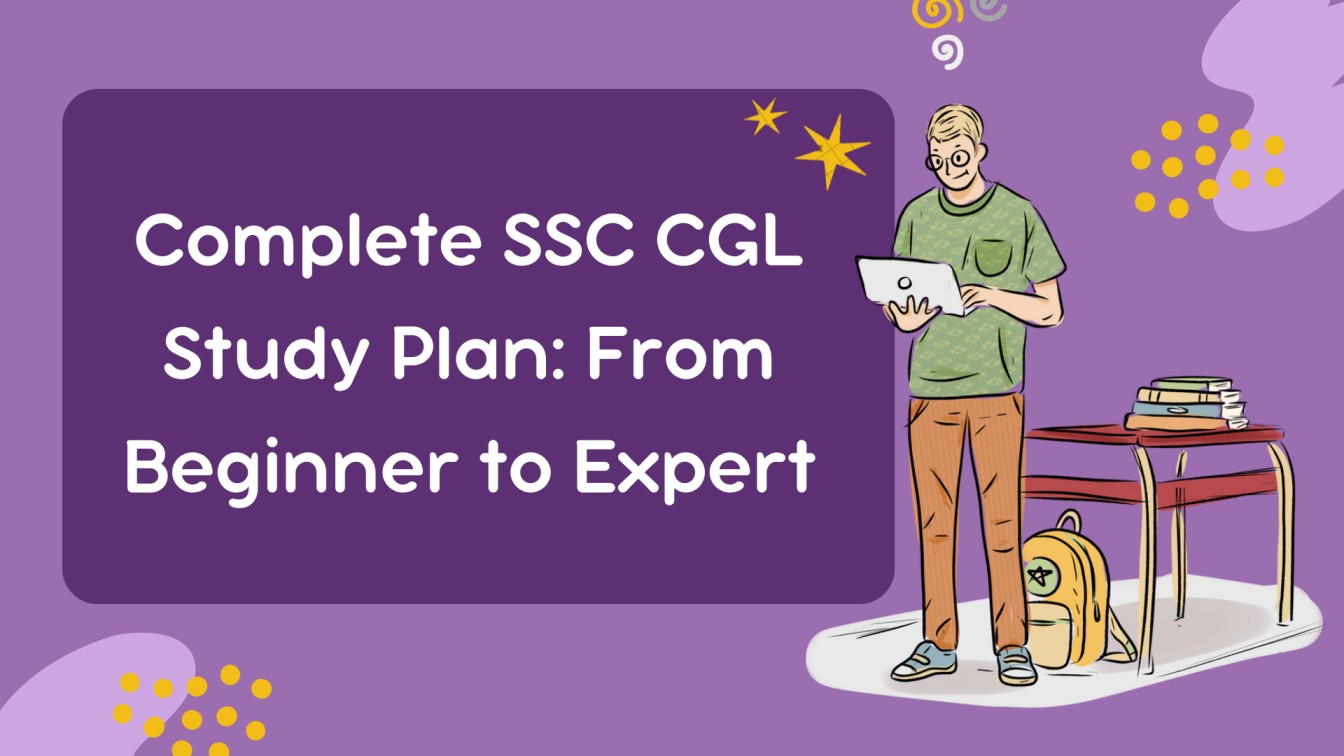The Staff Selection Commission Combined Graduate Level (SSC CGL) examination is one of the most sought-after competitive exams in India, attracting thousands of aspirants every year. The exam is a gateway to various government jobs under different ministries and departments. Given its competitive nature, a well-structured study plan is crucial for success. This guide will take you through a detailed study plan, starting from the basics and progressing to an expert level, ensuring that you are fully prepared to tackle the SSC CGL exam with confidence.
Note: you can also learn from SSC CGL Coaching in Jharkhand
Understanding the SSC CGL Exam
Before diving into the study plan, it’s essential to understand the exam pattern and syllabus. The SSC CGL exam is conducted in four tiers:
-
Tier I: Preliminary Exam – This is an online objective test consisting of four sections: General Intelligence and Reasoning, General Awareness, Quantitative Aptitude, and English Comprehension.
-
Tier II: Main Exam – Also online and objective, this tier includes Quantitative Abilities, English Language and Comprehension, Statistics, and General Studies (Finance and Economics).
-
Tier III: Descriptive Paper – This is a pen-and-paper test to evaluate writing skills, where candidates write essays, letters, applications, etc.
-
Tier IV: Skill Test/Computer Proficiency Test (where applicable) – This final tier assesses the practical skills required for specific posts.
Setting the Foundation: The Beginner Phase
1. Understanding the Syllabus and Exam Pattern
Start by downloading the official SSC CGL syllabus and thoroughly understanding the exam pattern. This will give you a clear idea of what to expect and help you identify the areas you need to focus on.
2. Building a Strong Base
Begin with the basics. Ensure you have a strong grasp of fundamental concepts in mathematics and English. For reasoning and general awareness, start by familiarizing yourself with the types of questions asked in the exam.
3. Creating a Study Schedule
Divide your time effectively between the four sections of the Tier I exam. Allocate more time to subjects you find challenging. A balanced study schedule might look like this:
-
Quantitative Aptitude: 2 hours daily
-
English Comprehension: 1.5 hours daily
-
General Intelligence and Reasoning: 1 hour daily
-
General Awareness: 1 hour daily
4. Collecting Study Materials
5. Regular Practice
Start with solving previous years’ question papers and taking mock tests. This will help you get accustomed to the exam pattern and identify your weak areas.
Note: now you can learn from best CAT coaching in Jharkhand
Intermediate Phase: Strengthening Your Preparation
1. Advanced Topic Coverage
Move on to covering more advanced topics and complex questions in each subject. Focus on higher-level quantitative aptitude problems, intricate reasoning puzzles, and in-depth grammar and comprehension exercises.
2. Regular Revision
Create a revision plan to regularly revisit topics you have already covered. This ensures that the information stays fresh in your mind and helps in retaining concepts better.
3. Time Management
Work on improving your speed and accuracy. Practice solving questions within a stipulated time to simulate exam conditions. Use a stopwatch to time your practice sessions.
4. Mock Tests and Analysis
Take full-length mock tests regularly. Analyze your performance critically after each test. Identify the areas where you are making mistakes and work on them. This iterative process is crucial for continuous improvement.
Expert Phase: Polishing and Perfecting
1. Mastering Shortcuts and Tricks
Learn and master shortcuts and tricks for solving quantitative aptitude and reasoning questions quickly. This can significantly reduce the time you spend on these sections during the actual exam.
2. Focus on Weak Areas
Pay special attention to your weak areas. Dedicate extra time to topics that you find challenging and seek help if needed, either through online forums, study groups, or coaching classes.
3. Enhancing General Awareness
For the General Awareness section, stay updated with current affairs. Read newspapers daily, and follow news websites and monthly magazines like Pratiyogita Darpan. Focus on the last six months’ current affairs before the exam.
4. Tier II Preparation
Since Tier II requires in-depth knowledge, start preparing for it alongside Tier I. Focus on advanced mathematics, comprehensive English practice, and specific subjects like Statistics and General Studies if applicable.
5. Descriptive Paper Practice
For Tier III, practice writing essays, letters, and applications regularly. Focus on clarity, coherence, and conciseness. Time your writing practice to improve speed and efficiency.
Final Phase: Last-Minute Preparation and Strategy
1. Revision and Consolidation
In the final weeks leading up to the exam, focus on revising all the topics. Consolidate your learning by going through notes, flashcards, and summarized materials.
2. Mock Test Marathon
Take a series of mock tests in a simulated exam environment. This helps build stamina and gets you accustomed to the pressure of the actual exam.
3. Health and Well-being
Ensure you are in good health. Get adequate sleep, eat healthily, and take short breaks during study sessions to avoid burnout.
4. Exam Day Strategy
Plan your exam day strategy. Decide the order in which you will attempt the sections based on your strengths. Read the questions carefully and avoid spending too much time on a single question.
Note: you can also apply for IPM IPMAT BBA Coaching
Conclusion
Preparing for the SSC CGL exam requires dedication, consistent effort, and a strategic approach. By following this comprehensive study plan, from the basics to advanced levels, you can systematically enhance your preparation and increase your chances of success. Remember, perseverance and regular practice are key. Stay focused, keep your goals in sight, and give it your best effort. Good luck!










